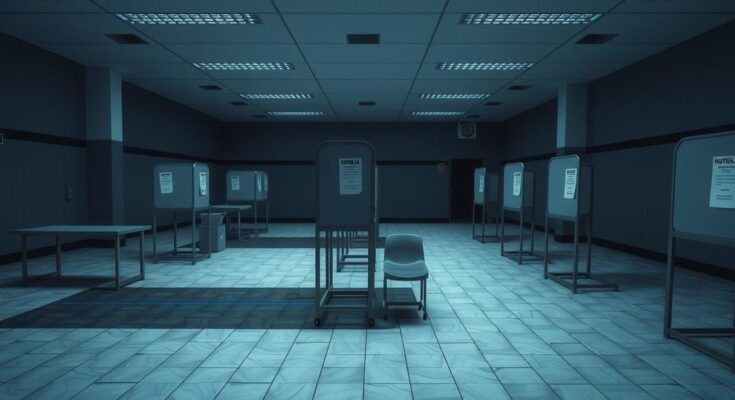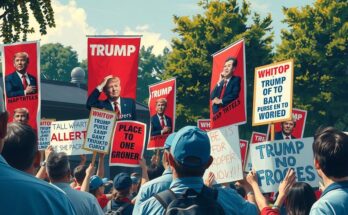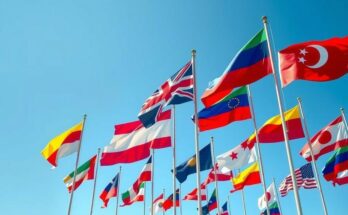Venezuelan opposition leader Maria Corina Machado urges a boycott of the May 25 elections, predicting empty polling places. The opposition is divided on participation, with some viewing engagement as a way to replace Maduro, who faces growing vulnerabilities despite having support from security forces. Machado condemns the elections as a sham and vows to continue fighting against Maduro’s rule.
Maria Corina Machado, a prominent Venezuelan opposition leader, has declared her intention to boycott the upcoming gubernatorial and legislative elections scheduled for May 25. Speaking in an interview with AFP via Zoom, she asserted that polling stations would be “empty,” following President Nicolas Maduro’s widely contested reelection last year. She characterized the upcoming vote as a “huge farce” aimed at overshadowing the opposition’s victory on July 28, when many, including her party, argued they won the presidential election.
Machado anticipates that the May 25 vote will mark a significant defeat for Maduro’s regime, predicting that they would be left “absolutely alone” at the polls. The opposition is notably divided regarding their participation; Machado’s camp is calling for a boycott while a smaller faction, led by Henrique Capriles, plans to take part. This division underscores the ongoing conflict within Venezuela’s political landscape.
Previously, Maduro harnessed the power of security forces to suppress dissent regarding his claim of a legitimate victory in the last presidential election. Despite support from these forces, Machado noted potential fractures within their ranks, claiming the government is “in a state of great vulnerability.” This situation stems from the opposition’s boycott of the 2020 parliamentary elections, prior to their 2018 presidential boycott, allowing Maduro’s allies to regain control and implement harsher laws, as reported by human rights groups.
The Democratic Unity Platform (PUD) that Machado leads recently released its findings, suggesting that their candidate, Edmundo Gonzalez Urrutia, won two-thirds of the votes in polling stations. Machado has maintained a profile of resistance, emerging from hiding briefly to protest in Caracas earlier this year. She remains firm that participating in the coming elections would legitimize a process she deemed corrupt.
Maduro’s party has rolled out candidate lists for various governorships, even addressing areas like Essequibo, a resource-rich region long claimed by Guyana. Meanwhile, Capriles argues there is no alternative but to engage in elections to displace Maduro, despite the heavy US sanctions imposed over the years.
Some segments of the opposition contend that such sanctions have disproportionately impacted the average Venezuelan, leading to extreme economic turmoil characterized by hyperinflation and severe shortages. However, Machado firmly places the blame on Maduro, asserting that he is the “only person responsible for the sanctions,” and committed to her campaign against his rule until the very end.
This looming election in Venezuela is shaping up to be a significant test of political strength and public sentiment, given the stark division among opposition forces. With Machado urging a boycott to avoid legitimizing what she claims is an unjust process, the implications for future governance and democratic participation remain uncertain. As Maduro’s administration continues to assert control amidst international scrutiny, the opposition’s actions—or inactions—will likely play a crucial role in the evolving political landscape of Venezuela.
Original Source: www.news-graphic.com




